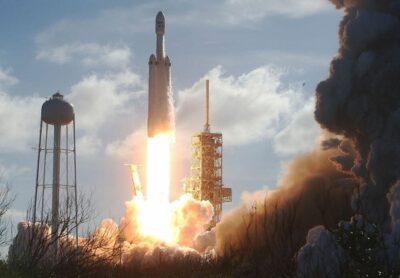More launches mean more closed airspace for airlines, and more delays.
 On Feb. 6, Elon Musk’s SpaceX launched its largest rocket into the blue Florida sky. Onboard was “Starman,” a dummy strapped into the billionaire’s cherry red Tesla roadster. Minutes later, fans cheered as Musk topped himself by nailing a simultaneous landing of the Falcon Heavy’s boosters. It was arguably a turning point for the commercial space age.
On Feb. 6, Elon Musk’s SpaceX launched its largest rocket into the blue Florida sky. Onboard was “Starman,” a dummy strapped into the billionaire’s cherry red Tesla roadster. Minutes later, fans cheered as Musk topped himself by nailing a simultaneous landing of the Falcon Heavy’s boosters. It was arguably a turning point for the commercial space age.
Airlines were somewhat less thrilled. On that day, 563 flights were delayed and 62 extra miles added to flights in the southeast region of the U.S., according to Federal Aviation Administration data released Tuesday by the Air Line Pilots Association, or ALPA.
America’s airspace is a finite resource, and the growth of commercial launches has U.S. airlines worried. Whenever Musk or one of his rivals sends up a spacecraft, the carriers which operate closer to the ground must avoid large swaths of territory and incur sizable expenses.
 Off The Grid News Better Ideas For Off The Grid Living
Off The Grid News Better Ideas For Off The Grid Living



